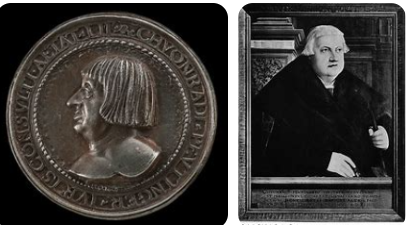(conrad peutinger ii 1475) Conrad Peutinger, born in 1475 in Augsburg, Germany, was a prominent figure of the Renaissance period. He was a humanist, diplomat, politician, and scholar known for his deep interest in classical studies, antiquities, and his contributions to cartography and history. Peutinger’s intellectual endeavors spanned various fields, making him a notable figure in European humanism during the late 15th and early 16th centuries.
2. Early Life and Education
(conrad peutinger ii 1475) Peutinger came from a wealthy merchant family in Augsburg, which was one of the most prosperous cities in the Holy Roman Empire. His privileged upbringing provided him access to education, allowing him to attend some of the best universities in Europe, including the University of Basel and the University of Padua. He studied law, classical literature, and humanism, laying the foundation for his future intellectual pursuits.
3. Influence of the Renaissance
(conrad peutinger ii 1475) Born at the height of the Renaissance, Peutinger was deeply influenced by the intellectual currents of his time. The Renaissance was characterized by a renewed interest in the classical knowledge of ancient Greece and Rome. Peutinger embraced this movement, becoming a passionate collector of ancient manuscripts, artifacts, and maps. His work reflected the ideals of the Renaissance, which sought to harmonize classical learning with contemporary thought.
4. Peutinger’s Role as a Humanist
(conrad peutinger ii 1475) Peutinger was part of a growing circle of humanists in Europe who believed in the power of education and knowledge to improve society. He corresponded with other scholars, such as Erasmus of Rotterdam, and contributed to discussions on the revival of classical learning. As a humanist, Peutinger was particularly interested in the study of ancient Roman civilization, and his work often focused on preserving and promoting the knowledge of the past.
5. Peutinger’s Career in Diplomacy and Politics
(conrad peutinger ii 1475) In addition to his scholarly pursuits, Peutinger was active in political life. He served as a legal advisor and diplomat for Emperor Maximilian I and was involved in various political negotiations across Europe. His political career allowed him to travel widely, which further fueled his interest in classical antiquities and cartography. Despite his political responsibilities, Peutinger never abandoned his scholarly endeavors.
6. The Peutinger Table: An Ancient Map of the Roman Empire
(conrad peutinger ii 1475) One of Peutinger’s most significant contributions to history was his involvement in preserving the Tabula Peutingeriana, also known as the Peutinger Table. This ancient Roman map, believed to date back to the 4th or 5th century, shows the road network of the Roman Empire. Peutinger inherited the map from a friend and fellow humanist, Konrad Celtes, and took great care to preserve and study it.
7. The Importance of the Peutinger Table
(conrad peutinger ii 1475) The Peutinger Table is one of the most important cartographic documents from antiquity. It provides valuable insight into the infrastructure of the Roman Empire, depicting major roads, cities, and landmarks across Europe, North Africa, and parts of Asia. Although the map is not geographically accurate by modern standards, it is an invaluable resource for understanding the extent of Roman influence and their road systems.
8. Peutinger’s Contribution to Cartography
(conrad peutinger ii 1475) While Peutinger did not create the map, his role in preserving and promoting it has cemented his place in the history of cartography. By keeping the Tabula Peutingeriana alive and accessible to future generations, Peutinger ensured that this critical piece of Roman history was not lost. His contribution to the field of cartography exemplifies his broader dedication to the preservation of classical knowledge.
9. Peutinger’s Library: A Repository of Classical Knowledge
(conrad peutinger ii 1475) In addition to his work with the Peutinger Table, Peutinger was an avid collector of books and manuscripts. His personal library included works on law, history, and classical literature, as well as a vast collection of Roman inscriptions. His library became a center for humanist scholarship, attracting other scholars interested in studying ancient texts and artifacts.
10. Peutinger and Roman Antiquities
(conrad peutinger ii 1475) Peutinger’s interest in Roman antiquities went beyond maps and manuscripts. He was also deeply involved in the study of Roman inscriptions and monuments. His home in Augsburg became a repository for Roman artifacts, and he worked to document and preserve these relics of the past. Peutinger’s passion for Roman antiquities was part of his broader goal to revive interest in the classical world.
11. Peutinger’s Contributions to Roman Epigraphy
(conrad peutinger ii 1475) Epigraphy, the study of inscriptions, was one of Peutinger’s main areas of interest. He meticulously recorded Roman inscriptions, contributing to the growing body of knowledge about the Roman Empire. His work in this field was instrumental in helping scholars understand the political, social, and cultural life of ancient Rome through its inscriptions.
12. Peutinger and the Renaissance Circle in Augsburg
(conrad peutinger ii 1475) Augsburg, Peutinger’s hometown, was a center of Renaissance culture in Germany. Peutinger was a key figure in the city’s intellectual community, regularly hosting discussions and meetings with other humanists, scholars, and artists. His home became a hub for the exchange of ideas, and he played a central role in fostering the intellectual life of the city.
13. Peutinger’s Relationship with Emperor Maximilian I
(conrad peutinger ii 1475) Peutinger’s political career brought him into close contact with Emperor Maximilian I. He served as a legal advisor to the emperor and was involved in diplomatic missions on Maximilian’s behalf. The emperor’s patronage allowed Peutinger to continue his scholarly work while also engaging in political affairs. His relationship with Maximilian was one of mutual respect, and Peutinger’s influence extended into the imperial court.
14. Peutinger’s Role in the Holy Roman Empire
(conrad peutinger ii 1475) In his role as a diplomat, Peutinger helped to mediate disputes between various states within the Holy Roman Empire. He was involved in negotiations that shaped the political landscape of Europe during the early 16th century. His legal expertise and diplomatic skills made him a trusted advisor to the emperor and other European leaders.
15. Peutinger and the Printing Revolution
(conrad peutinger ii 1475) The invention of the printing press in the 15th century revolutionized the spread of knowledge, and Peutinger was quick to embrace this new technology. He used the printing press to disseminate his own works and those of other humanists. Peutinger recognized the power of the printed word to reach a broader audience and contribute to the revival of classical learning.
16. Peutinger’s Published Works
(conrad peutinger ii 1475) While Peutinger is best known for his role in preserving the Tabula Peutingeriana, he also published several works on Roman history and law. His writings reflect his deep knowledge of classical literature and his commitment to humanist principles. Peutinger’s works were widely read by his contemporaries and helped to shape the intellectual currents of his time.
17. Peutinger’s Correspondence with Leading Humanists
(conrad peutinger ii 1475) Peutinger maintained correspondence with some of the leading humanists of his day, including Erasmus of Rotterdam and Johannes Trithemius. These letters provide insight into the intellectual exchanges of the Renaissance and highlight Peutinger’s central role in the humanist movement. His correspondence covered a wide range of topics, from classical literature to contemporary politics.
18. Peutinger’s Influence on Renaissance Thought
Peutinger’s work as a scholar and humanist had a lasting impact on Renaissance thought. His efforts to preserve and promote classical knowledge helped to inspire a renewed interest in the ancient world among his contemporaries. Peutinger’s contributions to fields such as cartography, epigraphy, and history continue to be recognized by scholars today.
19. Peutinger’s Legacy in Cartography
Peutinger’s legacy is most closely associated with the Tabula Peutingeriana. His work in preserving this ancient map ensured that it remained an essential resource for understanding Roman history and geography. The Peutinger Table is still studied by historians and cartographers today, and it remains one of the most important artifacts from the Roman world.
20. The Peutinger Table’s Influence on Modern Cartography
Although the Peutinger Table is a relic of antiquity, its influence extends into the modern world. Cartographers and historians have used the map to trace the development of Roman infrastructure and understand the empire’s reach. Peutinger’s role in preserving this map has allowed modern scholars to study the Roman Empire’s vast road network and its significance in shaping European history.
21. Peutinger’s Influence on German Humanism
Peutinger was a central figure in the German humanist movement, which sought to revive classical learning in the Holy Roman Empire. His work in collecting and preserving Roman artifacts and manuscripts helped to establish Germany as a center of Renaissance scholarship. Peutinger’s influence can be seen in the work of later German scholars who continued his efforts to study and preserve the classical world.
22. Peutinger’s Family and Personal Life
Peutinger was married to Margareta Welser, a member of one of Augsburg’s wealthiest and most influential families. Together, they had several children, and Peutinger’s descendants continued to play a role in the city’s intellectual and political life. Despite his many public responsibilities, Peutinger remained deeply committed to his family and his personal scholarly pursuits.
23. Peutinger’s Death and Posthumous Recognition
Conrad Peutinger died in 1547, but his contributions to scholarship and humanism continued to be recognized long after his death. His work in preserving Roman antiquities and promoting classical learning left a lasting impact on European intellectual life. Peutinger’s name remains associated with the Tabula Peutingeriana, and his legacy as a Renaissance humanist endures.
24. Peutinger’s Enduring Impact on Scholarship
Today, Peutinger is remembered as one of the most important humanists of the Renaissance. His work in preserving ancient knowledge and his contributions to the study of Roman history continue to be valued by scholars. Peutinger’s dedication to learning and scholarship exemplifies the ideals of the Renaissance, and his legacy lives on in the fields of history, cartography, and classical studies.
25. Conclusion: Peutinger’s Place in History
Conrad Peutinger’s life and work reflect the intellectual and cultural achievements of the Renaissance. As a humanist, diplomat, and scholar, he played a crucial role in preserving the knowledge of the classical world and contributing to the intellectual life of his time. Peutinger’s legacy is one of dedication to the pursuit of knowledge, and his contributions to history and cartography have ensured his place in the annals of Renaissance scholarship.







